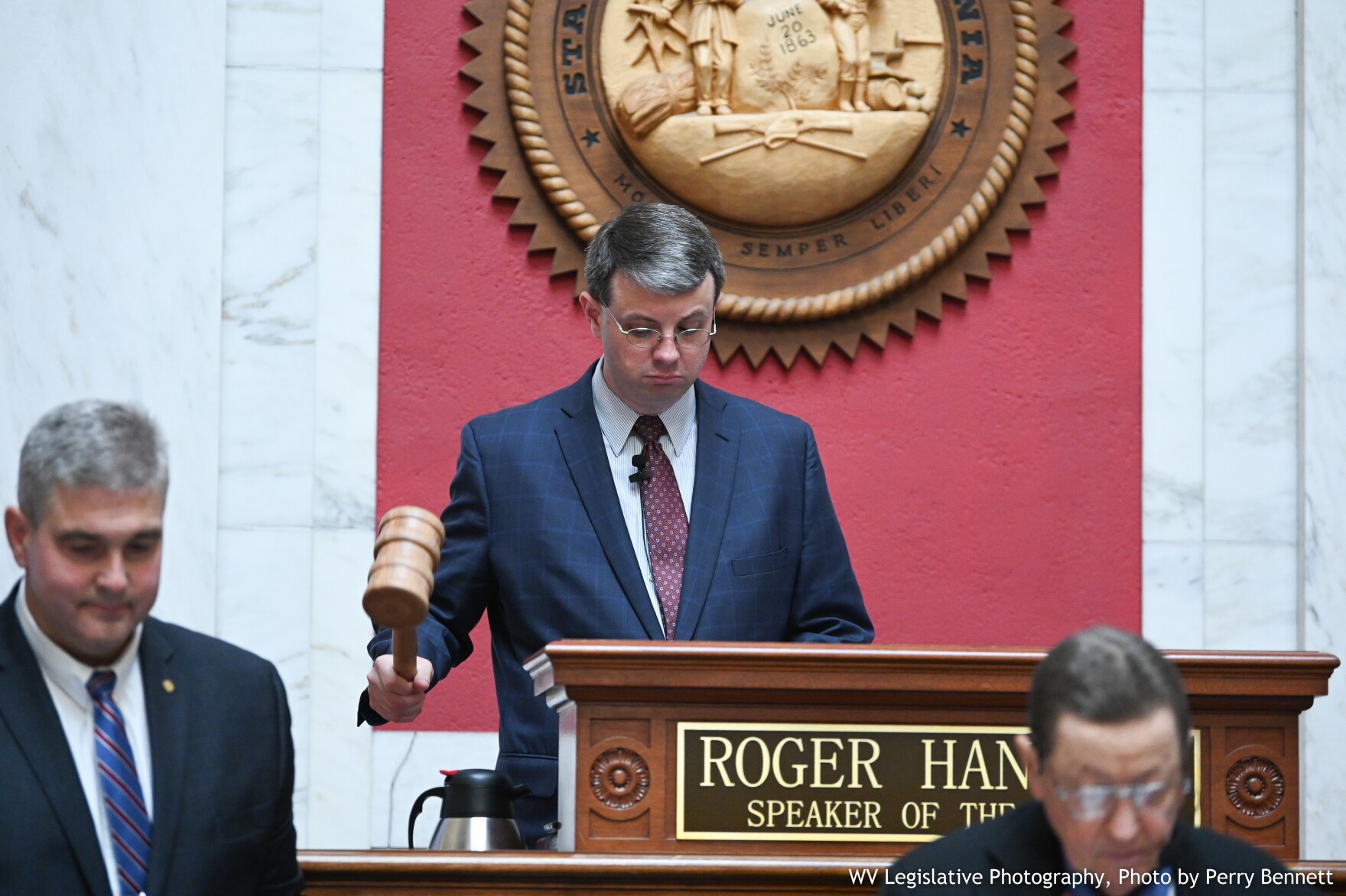The West Virginia Legislature swiftly approved seven bills in a Monday special session to fund public health, education and transportation. A majority of those funds — which come from the American Rescue Plan passed by Congress in March — were already earmarked to cover the state’s expenses related to the coronavirus pandemic.
Gaveling in at noon Monday, the West Virginia House of Delegates and Senate quickly passed appropriations to the state Department of Health and Human Resources and the Department of Education.
Lawmakers also cleared a bill to move $150 million in state budget surplus towards highway maintenance projects. With one month to go in Fiscal Year 2021, the state stands at a nearly $390 million surplus.
Gov. Jim Justice and Transportation Secretary Byrd White both have said the money will go to repair more than 740 miles of roadway across all of the state’s 55 counties.
While the appropriations to public health and education moved quickly and without debate, the funding for road maintenance drew some conversation on the House floor.
Del. Marty Gearheart, R-Mercer, said West Virginia’s roads need to be improved, but he questioned whether it should be through using those surplus — given the governor’s Roads to Prosperity bond program and negotiations over federal legislation to revamp the nation’s infrastructure.
Gearheart also pointed to a failed proposal during the regular session that called for a phasing out of the state personal income tax as a reason to be more conservative with spending budget surpluses.
“I think we need to do what we’re supposed to do and make a little more consideration as to how we expend money — that we direly wanted to spend to relieve taxpayers just a few short months ago,” Gearheart said. “And now we’re just going to extend it all into one lump because it happens to be there in surplus.”
Along with other House members, Del. Lisa Zuckoff, D-Marshall, stood in support of the highway maintenance funding bill.
“It’s critical for the folks that live in my district — and they want the money to fix the roads,” Zukoff said. “When I put a note out that we were going to be voting on this, I got overwhelming support for voting for this bill.”
The highway maintenance bill cleared the Senate on a 29-0 vote, while House members voted 91-4 to approve the measure.
During Monday’s special session, members of the House and Senate also took their first steps to address congressional and state-level redistricting based on the 2020 census.
The federal count of the nation’s population has already indicated that West Virginia will lose one seat in the U.S. House of Representatives. Additionally, as a result of state legislation passed in 2018, the West Virginia House of Delegates will go from 100 members representing 67 districts to 100 single-member districts.
The Senate’s adoption of a resolution and the House’s adoption of a motion, respectively, will create Select Committees on Redistricting — allowing each body to appoint members to a Joint Committee on Redistricting.
According to a spokesperson for the House of Delegates, the Joint Committee on Redistricting is expected to be approved during a Tuesday meeting of the Joint Committee on Government and Finance.
The redistricting panel will be led by Sen. Charles Trump, R-Morgan, and Del. Gary Howell, R-Mineral, and will begin to meet in the late summer or early fall — pending the U.S. Census Bureau handing down final data to states.
During Monday’s Senate floor session, Trump noted the abnormally late data from the 2020 census, which has been delayed, in part, due to the coronavirus pandemic.
“It’s normally April when legislatures and the states have the full data from the Census bureau. As I understand it, we do not,” he said. “What I do understand is we’re to get some data in mid- to late-August and then maybe the full, final set of data on the census in West Virginia by the end of September.”




















